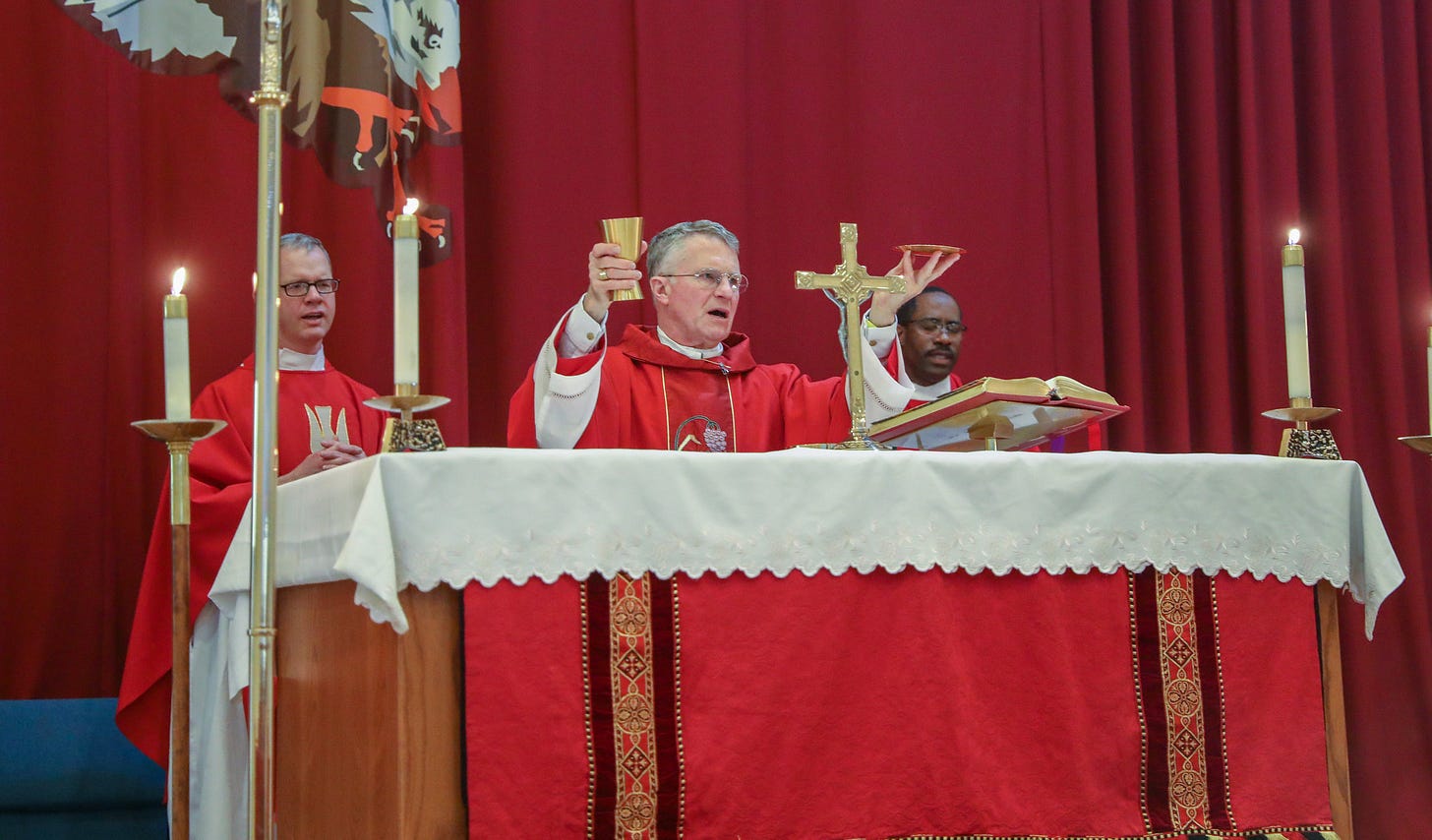A Turning Point in the Church's Response to Mass Deportations
Statements from Archbishops Broglio and Gomez
During the 2024 election campaign, Donald Trump promised to carry out “mass deportations” of undocumented immigrants, and Trump and his vice-presidential running mate JD Vance engaged in inflammatory, and in some cases calumnious, rhetoric regarding immigrants in the United States. Soon after Trump’s electoral victory in November, the US Catholic bishops adopted a cautious tone, acknowledging a need for enforcement of the nation’s immigration laws while promising to raise their voices if the incoming administration implemented policies that ripped apart families and communities and violated the dignity of persons. The day before President Trump’s inauguration, the late Pope Francis spoke more forcefully, calling it a “disgrace” if such policies were implemented, a rare comment on US domestic politics.
President Trump signed several executive orders impacting immigration enforcement during his first days in office, and Immigration and Customs Enforcement (ICE) simultaneously began carrying out several highly publicized operations in major US cities. The Department of Homeland Security also issued guidance stating that churches, as well as hospitals and schools, would no longer be considered “sensitive areas” where immigration enforcement was restricted. Timothy Broglio, the President of the United States Conference of Catholic Bishops and the Archbishop of the Military Services, and Bishop Mark Seitz of El Paso, the chair of the bishops’ Committee on Migration, both issued statements criticizing several of these new policies.
In the past few weeks, the Trump administration has begun implementing what could truly be considered a “mass deportation” policy. Tasked with making 3,000 arrests per day nationwide (in January, ICE officers were given a “quota” of 1,200 to 1,500 arrests per day), teams of ICE officers and other law enforcement clad in tactical gear, often wearing masks and refusing to identify themselves, have swept out to cities across the US, raiding businesses, residential areas, and even hospitals and homeless shelters, making warrantless arrests of people suspected of being undocumented. ICE officers have also begun arresting people in court houses after having their deportation cases dismissed; while usually this would mean the individual is free to legally seek asylum, once arrested, they are placed into “expedited removal.” Angered by these heavy-handed tactics, protestors began gathering on June 6 at a Home Depot in Los Angeles where a raid was taking place, and in the following days that protest has expanded, while similar protests have also begun in other cities.
Last week, I lamented that, apart from a brief statement by Archbishop José Gomez of Los Angeles given on June 6 and criticizing these raids, the US Catholic bishops had not yet responded to this dramatic shift in the situation. Only a few days later, however, as this week began, Archbishop Broglio issued a statement on behalf of all the bishops forcefully condemning the administration’s escalation in immigration enforcement, and the following day Archbishop Gomez released a similarly forceful statement of his own. I believe these statements represent a new moment in the US bishops’ relationship with the Trump administration, a clearer recognition of what’s at stake for the Church and the nation.

For one, both statements unequivocally condemn what Broglio calls the recent “surge in immigration enforcement action.” He goes on to say that these activities “represent a profound social crisis before which no person of good will can remain silent.” Similarly, Gomez states that, “This situation is not worthy of a great nation.” Although Broglio does admit that “Law enforcement actions aimed at preserving order and ensuring community security are necessary for the common good,” in both statements there is a clear sense that recent actions are well beyond the pale and morally wrong.
The second reason the statements are noteworthy is because they recognize that the issue is not simply a matter of bad immigration policy, as was largely the case in earlier statements. Rather, the very rule of law is at stake. I’ve long criticized the bishops for not sufficiently adapting to the “Trump Era,” continuing to think of politics in terms of issues to be debated while not giving adequate attention to threats to democratic institutions. In this case, however, they do recognize the danger Trump administration policy poses to the rule of law. For example, Broglio states that in many cases enforcement efforts are being carried out “in ways that are arbitrary or without due process,” and according to Gomez, “Here in Los Angeles, I have been deeply disturbed by the reports of federal agents detaining people in public places, apparently without showing warrants or evidence that those they are taking into custody are in the country illegally.” He adds, “Already we are hearing stories of innocent fathers and mothers being wrongly deported, with no recourse to appeal.” Significantly, Broglio adds that “The chronic lack of opportunities for legal status for our immigrant brothers and sisters, together with the growing denial of due process to them”—the latter likely a reference to the increasing use of expedited removals and changes to the immigration court system intended to make it harder for asylum seekers to gain legal status—also contribute to a pervasive breakdown in the rule of law.
Keep reading with a 7-day free trial
Subscribe to Window Light to keep reading this post and get 7 days of free access to the full post archives.




